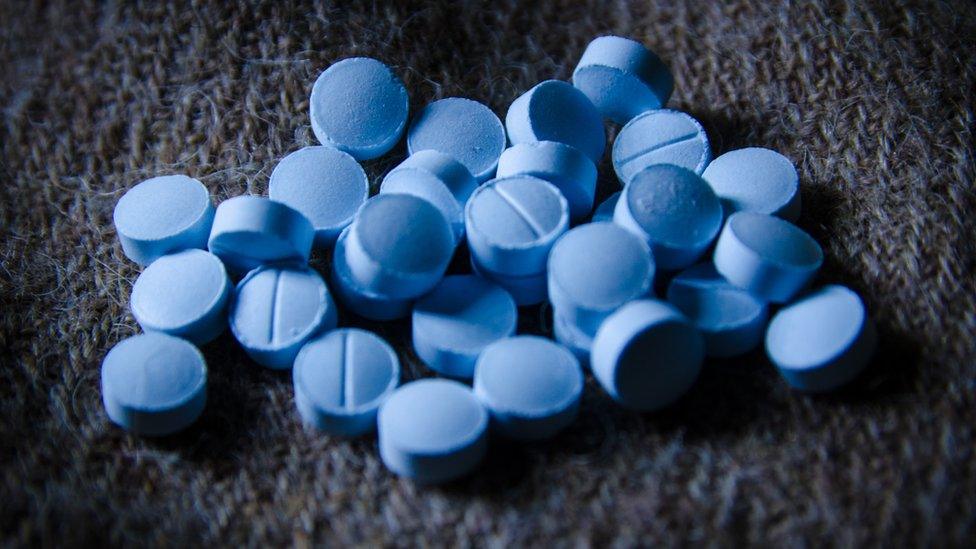Seizures of illegal diazepam tablets double in a year
- Published
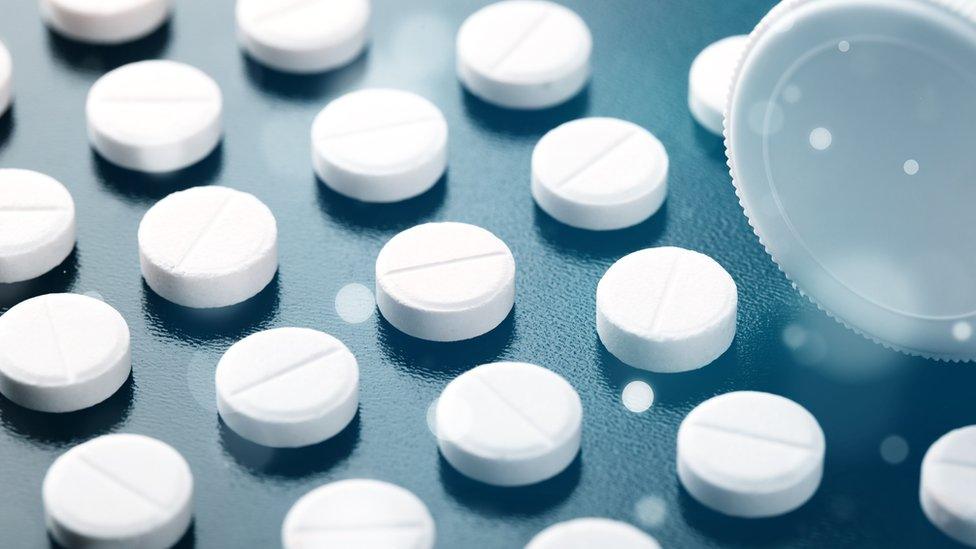
The number of illegal diazepam tablets seized entering the UK has more than doubled in a year, figures obtained by the Victoria Derbyshire programme show.
Some 1.3 million were intercepted in the postal system by the UK's Border Force in 2018, up from 545,000 in 2017.
Doctors warn the authenticity of diazepam bought online cannot be trusted. It is illegal to possess without a prescription.
The medicines regulator said selling such drugs was a "serious offence".
Its figures, for tablets that tested positive for diazepam, do not include the number of fake pills being seized.
One woman who was addicted to the drug for a decade - fuelled by pills bought online - said it had ruined her life.
Diazepam - also known by one of its brand names, Valium - is a class-C drug in the UK.
It is commonly used to treat anxiety, muscle spasms and seizures, working to calm the brain and nerves.
On the NHS, the medication is not recommended to be taken for longer than four weeks, while possessing the drug without a prescription carries a maximum prison sentence of two years.
Some people turn to rogue online pharmacies and dealers to buy it when they are unable to - or do not want to - get it from a doctor.
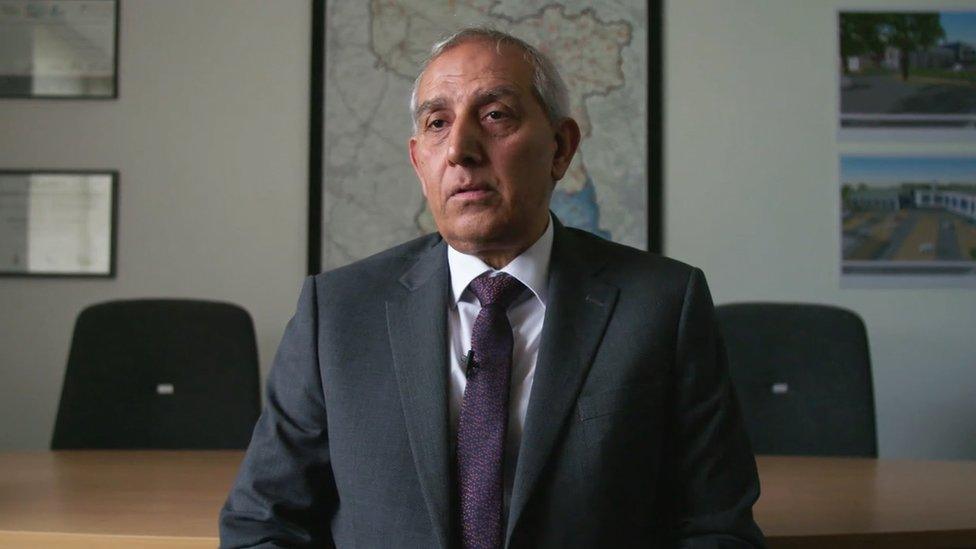
Hardyal Dhindsa believes "more must be done" across the health service and enforcement agencies
Hardyal Dhindsa, the national lead on drug and alcohol abuse for the Association of Police and Crime Commissioners (APCC), said online sales needed better legislation and monitoring.
"It's hard to see how we'll tackle this because availability online is so easy," he said.
"More needs to be done through the health service, the enforcement agencies and public health departments."
As part of its investigation, the BBC's Victoria Derbyshire programme bought three batches of diazepam online and had them tested by experts at St George's Hospital in south London.
Two batches were found to contain diazepam but one contained flualprazolam - an unlicensed drug that is more powerful and addictive.

'I don't remember most of my 20s'
"Emma" was first prescribed diazepam in her early 20s during a serious bout of anxiety.
"I went to the doctor crying and wanting to kill myself," she says.
"I just remember being given these pills and they made it all go away."
But Emma became addicted and doctors would not prescribe her the amounts she felt she needed.
"Instead of going to another GP and explaining the situation, I started buying them on the black market," she says.
Emma says the addiction ruined a decade of her life, causing her to underperform in her degree and postgraduate degree.
And she is only now beginning to recover after being clean for almost a year.
"I don't remember most of my 20s, I don't remember anything," she says.

The issue of people self-medicating for their mental health with diazepam illegally bought online has become so serious the Addiction to Online Medicine Service (Atom) has been established by the Central and North West London NHS Foundation Trust.
Its consultant psychiatrist, Dr Owen Bowden-Jones, said the main drug used by patients at the clinic was diazepam.
"The internet has been a game-changer," he said.
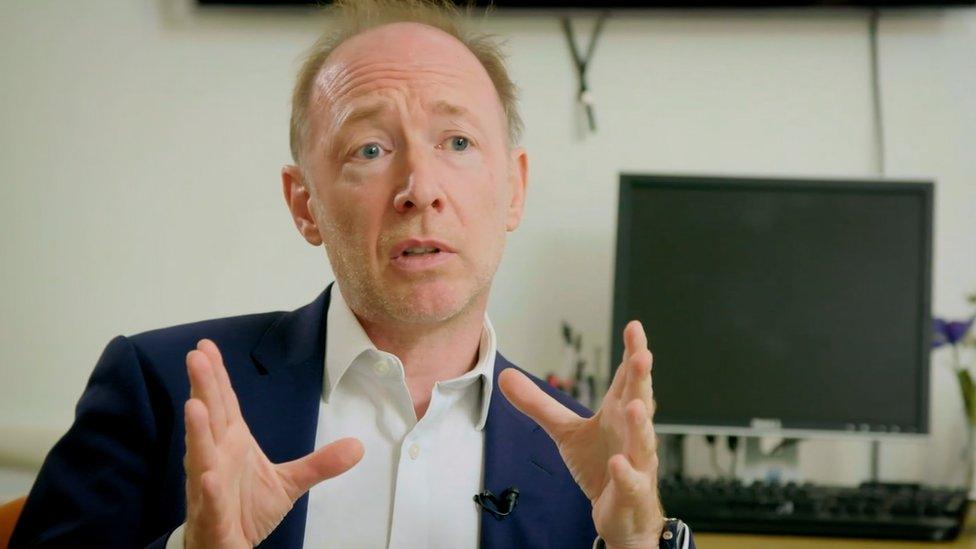
Dr Owen Bowden-Jones
"People are experiencing high anxiety or severe depression or sometimes chronic pain and they find that these drugs make them feel better and their dose just goes up and up and up."
Dr Bowden-Jones said coming off high doses of diazepam could be more dangerous than heroin withdrawal.
"If people are addicted to it and they stop suddenly, then they are at risk of having a seizure and of course that could potentially be life-threatening," he said.
It is not known how many people are buying illegal or fake diazepam online but it is significant enough for the Medicines and Healthcare products Regulatory Agency (MHRA) to have made seizing it a priority in the past year.
The Victoria Derbyshire programme visited a Border Force hub in central England where pills ordered online from across the globe arrive.
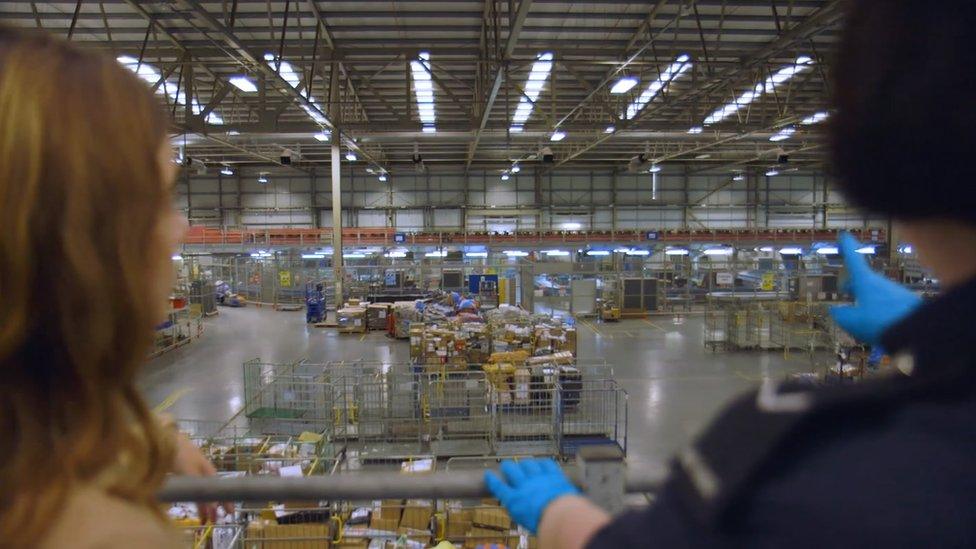
Thousands of pills are seized and tested by UK Border Force at its hub in central England
Officers there found some diazepam pills laced with fentanyl - a painkiller more potent than morphine and potentially fatal if taken without medical supervision.
The MHRA said selling prescription-only medicines outside of the legal supply chain was a serious criminal offence.
"Diazepam is scheduled under the Misuse of Drugs Act and classified as a prescription-only medicine for a reason," it said.
"Prescription medicines are - by their very nature - potent and must be prescribed by a healthcare professional based on their clinical judgement and access to patient records."
A Home Office spokesman said: "Border Force, the National Crime Agency, police and other law enforcement organisations work together with international partners to protect our borders from a range of threats, including harmful substances, and to disrupt and prosecute organised crime groups."

Follow the BBC's Victoria Derbyshire programme on Facebook, external and Twitter, external - and see more of our stories here.
- Published28 January 2019
